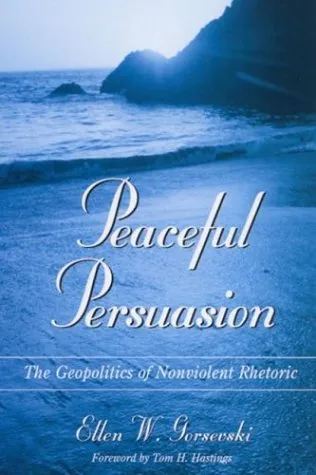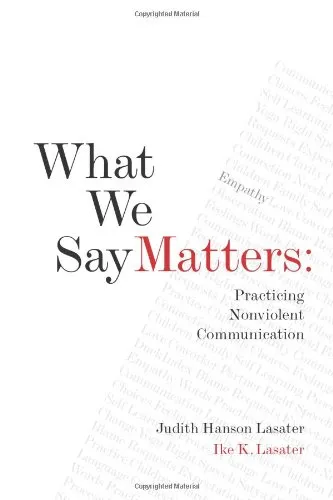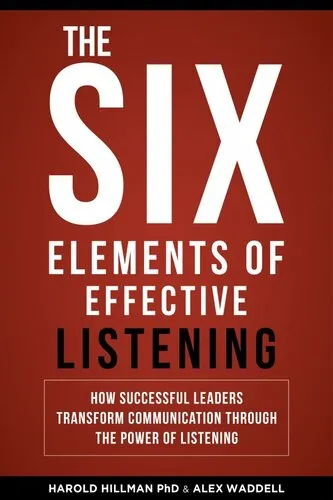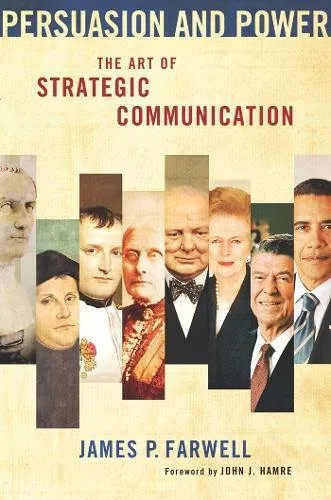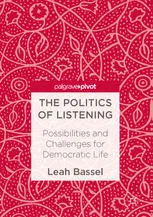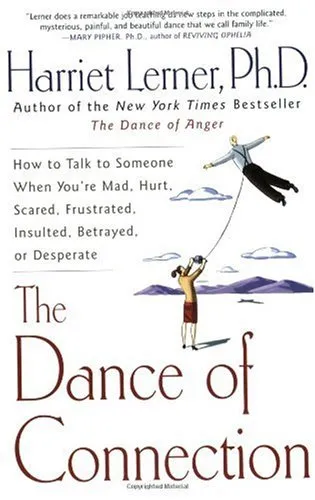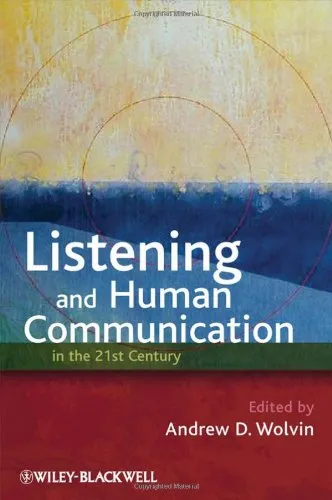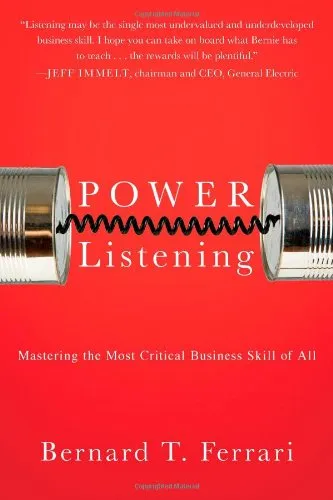Peaceful Persuasion: The Geopolitics of Nonviolent Rhetoric (Communication Studies)
4.5
Reviews from our users

You Can Ask your questions from this book's AI after Login
Each download or ask from book AI costs 2 points. To earn more free points, please visit the Points Guide Page and complete some valuable actions.Related Refrences:
Introduction to 'Peaceful Persuasion: The Geopolitics of Nonviolent Rhetoric'
In today's complex geopolitical landscape, the power of nonviolent rhetoric stands as a formidable force for peaceful change. 'Peaceful Persuasion: The Geopolitics of Nonviolent Rhetoric' explores the transformative potential of communication strategies that eschew violence and embrace dialogue, negotiation, and empathy, providing readers with a comprehensive understanding of how such rhetoric can influence global politics. Authored by Ellen W. Gorsevski, this groundbreaking book delves deep into the mechanisms of persuasion that foster peace and resolve conflicts.
Detailed Summary of the Book
'Peaceful Persuasion' meticulously examines the intersection of rhetoric and geopolitics through the lens of nonviolence. The book is divided into several cohesive chapters that guide the reader through essential concepts, theoretical frameworks, and real-world applications of nonviolent rhetoric. Gorsevski begins with a historical overview of nonviolent movements and their rhetorical strategies, emphasizing figures like Mahatma Gandhi, Martin Luther King Jr., and Nelson Mandela. These historical contexts set the foundation for understanding the evolution of peaceful persuasion.
Gorsevski then explores contemporary examples where nonviolent rhetoric plays a crucial role in international relations and conflict resolution. She highlights how nonviolent communication techniques can disrupt traditional power dynamics, allowing marginalized voices to be heard. By diving into case studies from various geopolitical hotspots, the book illustrates the effectiveness of peaceful rhetoric in diverse cultural and political environments.
Key Takeaways
- Nonviolent rhetoric serves as a catalyst for social and political change without resorting to violence.
- Understanding the historical context of nonviolent movements enhances our ability to apply similar principles today.
- Effective peaceful persuasion requires a deep understanding of cultural nuances and empathetic communication.
- Nonviolent strategies can be integrated into diplomatic processes to create sustainable peace.
Famous Quotes from the Book
"Nonviolent rhetoric transcends language; it is a universal call for justice, equity, and peace."
"In the art of peaceful persuasion, silence speaks volumes, and listening becomes an act of revolution."
Why This Book Matters
This book is essential reading for anyone interested in conflict resolution, diplomacy, and communication studies. At a time when global tensions are high, 'Peaceful Persuasion' offers invaluable insights into how language and rhetoric can build bridges rather than walls. The book challenges traditional notions of power and force, presenting nonviolent rhetoric as an equally, if not more, effective alternative in achieving political goals.
Furthermore, 'Peaceful Persuasion' encourages readers to reconsider their approach to conflicts in personal, national, and international contexts. It promotes a paradigm shift towards an empathetic and understanding society, where dialogue is the primary tool for negotiation and change.
Free Direct Download
You Can Download this book after Login
Accessing books through legal platforms and public libraries not only supports the rights of authors and publishers but also contributes to the sustainability of reading culture. Before downloading, please take a moment to consider these options.
Find this book on other platforms:
WorldCat helps you find books in libraries worldwide.
See ratings, reviews, and discussions on Goodreads.
Find and buy rare or used books on AbeBooks.
1389
بازدید4.5
امتیاز0
نظر98%
رضایتReviews:
4.5
Based on 0 users review
Questions & Answers
Ask questions about this book or help others by answering
No questions yet. Be the first to ask!
